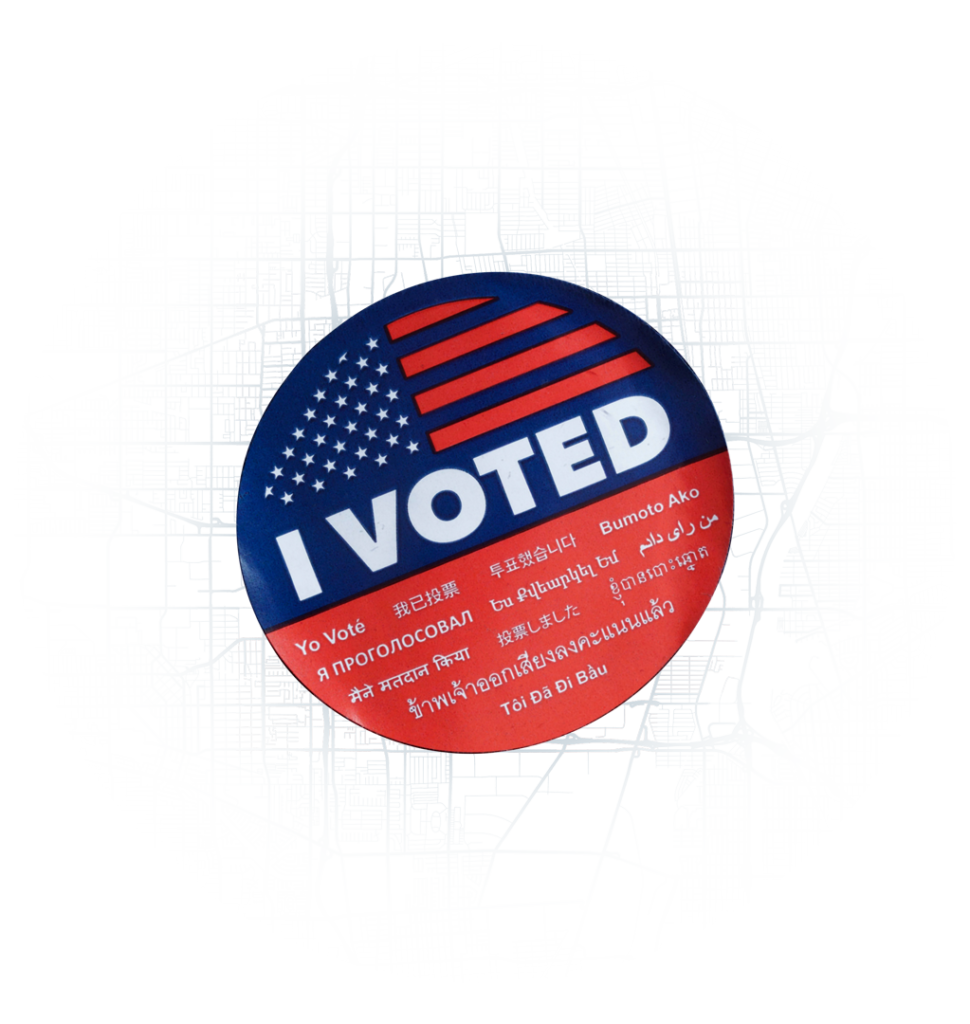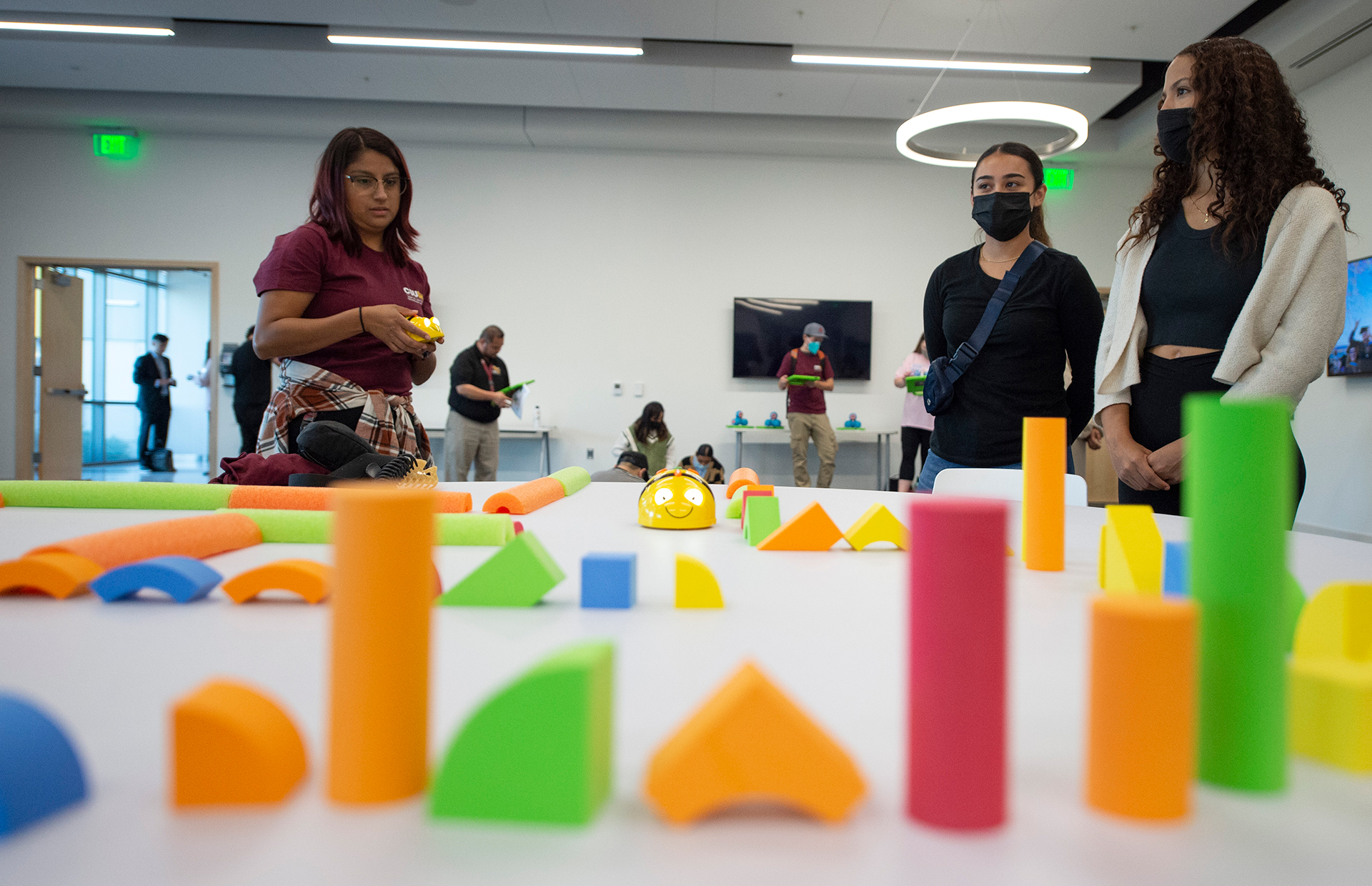Rex Richardson Represents
The Toro alum and new Long Beach mayor gives a voice to the voiceless
For Rex Richardson, the road to becoming mayor of Long Beach, California, has a definite starting point. “I wouldn’t be where I am without CSUDH,” he says. “That’s where I learned about service, leadership, and advocacy. CSUDH gave me my opportunity.”
In November 2022, Richardson was elected mayor of his adopted hometown, becoming the first Black and the second-youngest mayor in the city’s history. It was the culmination of years of service to the community—he has been working for the city since 2010, when he became chief of staff for former councilmember Steven Neal.
He won election to the city council in 2014, becoming Long Beach’s youngest-ever councilmember at the age of 31. Richardson’s leadership skills were soon recognized by his fellow councilmembers, and he was voted vice mayor in 2016, a position he held until his inauguration as mayor.
Richardson was born on Scott Air Force Base in Illinois to parents who divorced when he was a toddler. He moved to Southern California at the age of 11, when his single mother relocated from their then-home in Alabama to the west coast with him and his two siblings. Things weren’t easy for the family, and during high school, he and his older sister got jobs to help make ends meet.
“My mom worked a minimum wage job,” Richardson recalls. “I got a job at Jack in the Box. My sister worked at a local stationery shop. My job was to pay the light bill. My sister paid the phone bill. Mama paid the rent. But we were all committed to going to school, getting an education, and setting our roots here in California.”
He and his sister both attended CSUDH as first-generation college students. Richardson enrolled under the Educational Opportunity Program, which provides services to low-income, first-gen students from historically disadvantaged backgrounds.
“Receiving that acceptance letter from CSUDH was a moment I’ll never forget,” he says. “It affirmed to me that all those things my mom taught me about hard work and education and what it could do to transform your life were true. I had created a new trajectory for my life.”
I wouldn’t be where I am without CSUDH. That’s where I learned about service, leadership, and advocacy. CSUDH gave me my opportunity.”
It was while at CSUDH that Richardson became interested in politics. When he started at the university, tuition was less than $1,000 per semester. “But then the state had some budget issues and ended up balancing the budget on the backs of the students,” says Richardson. “Tuition went up three or four times in a short time period. All of us students were paying more money. That’s what got a lot of folks involved in student government.”
Richardson was elected president of Associated Students, Inc. (ASI) during his time at CSUDH, a position he credits with helping him develop the leadership skills needed for a career in politics. “It prepares you by honing your leadership,” he says. “The stakes are high, because even though you’re a student, you’re running a corporation. You have to represent others, but also understand campus politics, state funding, and local coalitions.
“How do you govern? How do you balance personalities? How do you move an agenda? How do you include people in a vision? These are big things to grapple with as a student, and they help you develop your ability to navigate these things as an adult. It was a great experience.”
Richardson actually left CSUDH a few courses shy of graduation, having gotten a full-time job as a community organizer for a local labor union. ”It was just a matter of life beginning to take place,” he says. “I was working, I had bought a house in north Long Beach, and I had a mortgage payment to deal with. It became more and more difficult to sit in the classroom, but leaving CSUDH was something that I was never comfortable with.”
At the urging of CSUDH President Thomas A. Parham and others, Richardson returned to school while serving as Long Beach vice mayor, attaining a BA in philosophy in 2020. “It’s important to set the example that it’s never too late,” he says. “Never give up on your goals. I think it’s powerful to tell someone that your story doesn’t have to be perfect. You don’t have to have the same trajectory as what others might find ideal.”
Richardson, his wife Nina, an educator and fellow Toro alum, and their two daughters continue to live in the north Long Beach community he bought a home in when he was 25 years old—the first in his family to own real estate. When inaugurated as mayor in December 2022, Richardson became the first person from north Long Beach and the first with young children to attain the position. He takes pride in speaking up for those who have previously been unrepresented in Long Beach politics.
“This represents a real shift in our political paradigm,” he says. “This is the first time that anyone from communities in north, west, or central Long Beach has a seat at the head of the table. It also means a lot from a representation standpoint. A child in these communities may now look at the city differently, a bit more hopefully. No matter your background, you can contribute to the collective betterment of our communities.”
Richardson knows he has his work cut out for him in the years ahead, leading California’s seventh most populous city. “Long Beach is filled with proud working families just like mine, who simply need an opportunity to thrive,” he says. “But there are too many families who lack that opportunity, too many families living one paycheck away from being on the street. I think I’ve been elected to deliver the kind of leadership that the city needs, so that no neighborhood is left behind.”

CSUDH: Majoring in Mayors
With his victory in Long Beach, Rex Richardson became one of five CSUDH alumni who have won elections and currently serve as mayors in Los Angeles County. He joins fellow Toros Karen Bass (Los Angeles), Lula Davis-Holmes (Carson), Emma Sharif (Compton), Alex Vargas (Hawthorne).
When asked why CSUDH has become such an incubator for political leadership, Richardson says, “CSUDH was designed for that very purpose. After the Watts Rebellion, there was a demand for more educational opportunities in close proximity to underserved communities.”
“We’re now witnessing the manifestation of people coming together at CSUDH for the purpose of improving their own communities. The university is demonstrating how their dedication to accessibility and transformation is making a difference around the region. CSUDH is an example of the way universities should be rooted in community, with a purpose and agenda to help shape and improve their surroundings.”


